What’s Happening to Healthcare Behind Bars? The Ministry of Health Responds
 Photo: Orda Collage
Photo: Orda Collage
Orda.kz examines how medical care is provided today to incarcerated persons.
In 2023, responsibility for the medical care of convicted persons was transferred from the Ministry of Internal Affairs’ Committee for the Penitentiary System to the Ministry of Health. Since then, it has been widely emphasized that incarcerated persons now have equal access to modern medical services.
However, because they are supported at state expense, they do not yet pay health insurance contributions.
Still, in many regions, relatives of incarcerated persons report that timely medical examinations and specialist consultations are difficult to obtain. And if a prisoner develops a severe illness — such as cancer — securing early release is often extremely challenging.
In some cases, petitions fail entirely, and the person remains in the colony, even when the law is on their side.
People submit complaints to the Ministry of Health and the Prosecutor General’s Office, requesting on-site investigations and accountability. But they often receive formal replies and remain uncertain about what their relatives are entitled to under the law.
They turned to our editorial team for answers, and we sent an official inquiry to the Minister of Health.

Deaths in Pre-trial Detention
Before addressing the Ministry’s response, we want to highlight another pattern. In recent months, several defendants in corruption cases have died in pre-trial detention before reaching trial — often from sudden heart attacks or strokes. Why they could not be saved remains unclear.
Perhaps their conditions were latent and went undiagnosed; perhaps stress played a role; perhaps the reasons differ entirely. In the end, these individuals — whose guilt was never proven in court — died as suspects.
Here are some of the most notable incidents reported by the media:
- August 19, 2025 — The former head of Specialized Center for Social Services No. 2 died in the Shymkent pre-trial detention center. He was accused of selling driver's licenses. Health officials said he suffered cardiovascular and multiple organ failure. He had hypertension and asthma. On August 18, his condition sharply deteriorated; he was hospitalized with an acute cerebrovascular incident (hemorrhagic type) and passed away.
- August 3, 2025 — A 73-year-old man died in a Taraz pre-trial detention center. He had been sentenced to nine years for bribery and was awaiting appeal. According to the regional penitentiary department, he had a documented cardiac condition and had been hospitalized for treatment several times. Preliminary reports cite heart disease as the cause.
- October 3, 2025 — A former judge suspected of bribery and fraud died suddenly in an Almaty pre-trial detention center. Preliminary cause: acute heart failure. His death was captured on CCTV. An investigation is ongoing.
- October 8, 2025 — A former police officer extradited from Türkiye died in a pre-trial detention center in Oskemen. He was suspected of involvement in an international criminal group that protected underground casinos. After complaining of feeling unwell, he was hospitalized but died several days later. Preliminary cause: bilateral thromboembolism.
Deaths inside pre-trial detention centers or colonies often come to light only through social media posts by activists or relatives, or through lawyers.
Not all cases become public.
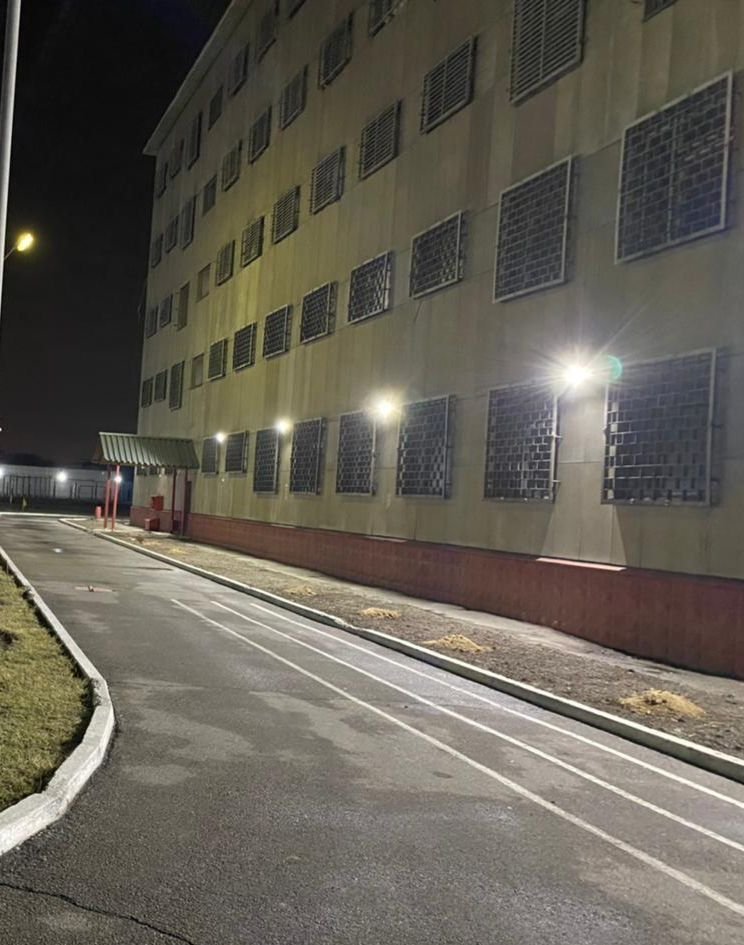
In 2024, we repeatedly reported that courts were denying parole to incarcerated persons who had served half their sentences and demonstrated rehabilitation. According to an open letter from incarcerated persons of the 19th Semey prison zone in January 2025, their second appeal to the president followed the suicide of an elderly man, twice denied parole and again refused on the third attempt. Prison officials did not disclose the incident.
The local penitentiary department officially reported only the recent death of another inmate, without specifying whether he belonged to Colony No. 19 or No. 20.
October 28, 2025 — A prisoner died in a Semey penal colony while serving a sentence for sexual assault.
After complaining of feeling unwell, he was examined, given medical care, and transported by ambulance. He died in hospital. Preliminary cause: stroke.
What The Ministry of Health Says
The Ministry of Health's response was signed by Gulnara Sarsenbayeva, Director of the Department of Medical Care Organization.
We first asked how many incarcerated persons — including foreign citizens — died in penitentiary facilities from January 2024 to October 2025, and what the causes were.
In 2024, 140 deaths were recorded. Of these, 37 were caused by circulatory diseases, 21 by cancer, and 10 by respiratory diseases. The majority — 84% — were due to illnesses, and 16% were due to accidents and suicides. There were no foreign nationals among the deceased.
Our sources indicate that foreign incarcerated persons have died recently in KUIS (penal enforcement committee - Ed.) facilities.
We also asked how the statistics for suicides and deaths changed between 2024 and 2025. The Ministry’s second answer differed from the first:
Based on the first nine months of 2025, a total of 105 deaths were recorded among convicted persons, including six foreign nationals. Mortality related to illness accounted for 89 cases, suicide accounted for 14, and other causes accounted for two. Illness-related deaths were dominated by diseases of the circulatory system — 37 cases (41.5%), nervous system — 17 cases (19.1%), digestive system — 13 cases (13.5%), and respiratory system — nine cases (10.1%).
It appears “other causes” refers to accidents — which KUIS rarely comments on publicly.
The Ministry also clarified the structure of inmate healthcare. Local doctors examine and treat incarcerated persons, reporting to regional health departments.
These departments are coordinated by the Ministry’s unit responsible for medical care in correctional institutions.
Sarsenbayeva oversees this division.
Treatment of Tuberculosis and HIV
According to the Ministry, four incarcerated persons have died this year from HIV and tuberculosis. This suggests they were unable to secure early release and died while still incarcerated.
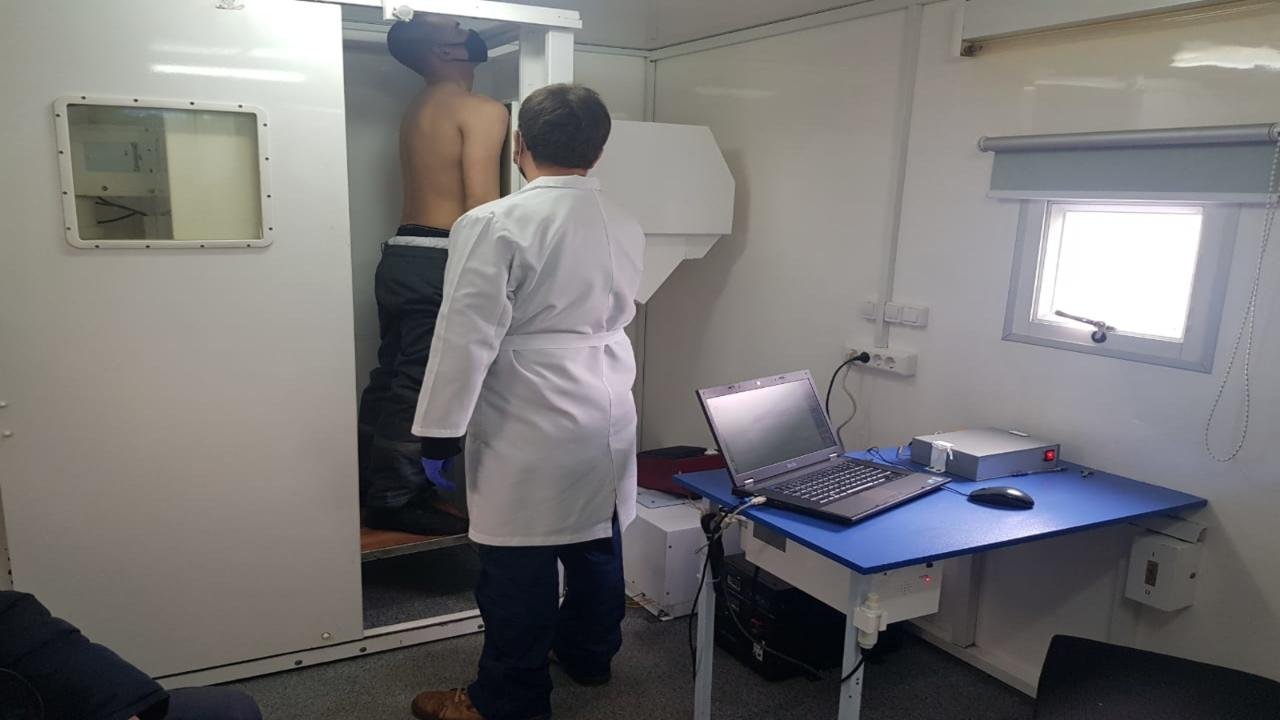
In September 2024, incarcerated persons at the 19th Semey colony wrote an open letter expressing concern that KUIS leadership planned to transfer them to the former Tubzon facility in the Qaraganda region.
After MP Bakytzhan Bazarbek intervened and the leadership changed, the relocation plan was dropped.
We asked where TB patients are treated now:
Currently, Penitentiary Institution No. 33 in the Qaraganda Region continues to operate as a specialized center for the treatment of incarcerated persons with active, contagious tuberculosis (MBT+). They are referred there regardless of the region where they are serving their sentence.
In their appeal, they wrote about facility No. 159/17, where, according to them, inmates with tuberculosis were previously treated. But then it was closed, and they allegedly wanted to relocate them there.
Meanwhile, the Ministry of Health's response lists the tuberculosis zone as No. 33, and it remains operational. But if an inmate with tuberculosis is deemed non-contagious, they receive treatment at the medical center at their place of incarceration.
This innovation has been in effect since August 2025, based on an order from the Minister of Health.
HIV-positive incarcerated persons are not housed separately; they remain in general populations since they do not pose an infection risk. However, the Ministry did not clarify why their numbers fluctuate from year to year or what happens when they leave the system.
The data shows:
- 2021 — 7 cases
- 2022 — 4
- 2023 — 14
- 2024 — 12
- First nine months of 2025 — 2
We asked how many incarcerated persons are registered with dispensaries for chronic illnesses.
The Ministry responded:
Based on the results of the first six months of 2025, 8,229 people are undergoing dynamic monitoring. This is eight percent more than for the same period in 2024 (7,630 people). The majority of cases are due to hepatitis B, C, and D without liver cirrhosis — 31%, diabetes mellitus — 22%, circulatory diseases — 22%, respiratory diseases — 16%, and mental and behavioral disorders — 4%.
Funding and Medication
There are more than 41,500 incarcerated persons in Kazakhstan. After the 30th anniversary amnesty and other humanitarian decisions, the number of incarcerated persons will drop by the end of 2025.
Could this affect funding in 2026?
According to local executive bodies, the cost of providing medical care to individuals held in pre-trial detention facilities and penal institutions (salaries, utilities, medicines, fuel and lubricants, and other expenses) amounted to 7.4 billion tenge in 2023 and 7.3 billion tenge in 2024. The Ministry's data reveals.
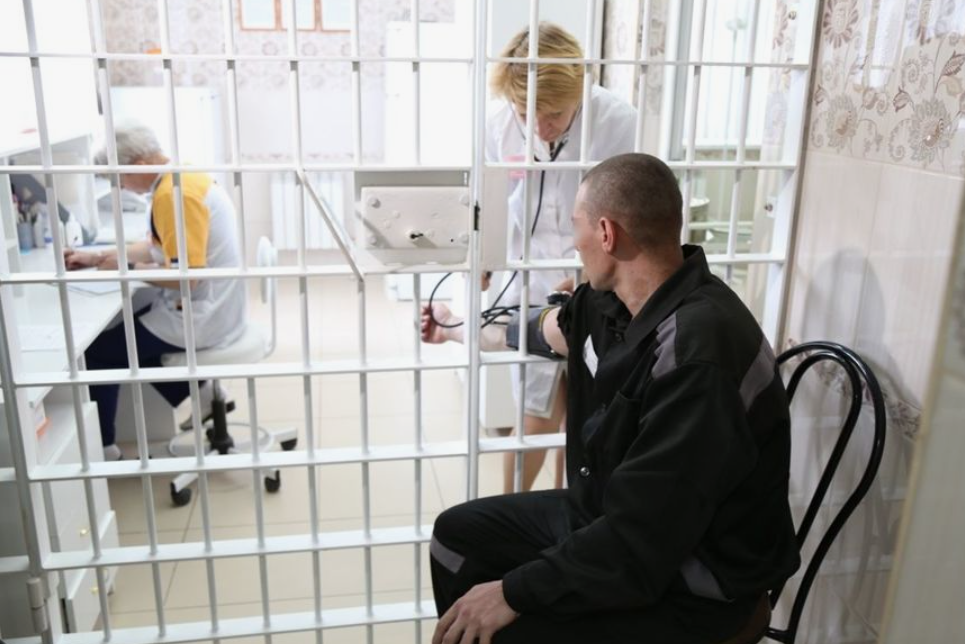
We asked how costs are calculated.
The Ministry replied:
The calculation of the comprehensive tariff for one person held in a pre-trial detention facility or penal institution is performed monthly based on the funding volume for medical care for those held in pre-trial detention facilities and penal institutions for the upcoming financial year. This amount is divided by the annual average headcount over three years and then divided by 12 months.
Our attempt to translate this with GPT suggested the following:
Take the annual medical budget for incarcerated persons → divide by the average number of incarcerated persons over three years → then divide by 12 for a monthly rate.
Regarding foreign detainees:
Foreign citizens held in pretrial detention facilities and holding a valid voluntary health insurance policy (VHI) have the right to receive medical services within the scope of their insurance policy, at the expense of the insurance company. Emergency medical care is provided regardless of VHI coverage, in accordance with the laws of the Republic of Kazakhstan.
If a foreigner lacks insurance, assistance from humanitarian organizations is possible — but only if procedures are followed.
The Ministry added:
Since the transfer of responsibility for providing medical care to prisoners to the Ministry, there have been no cases of charitable assistance from international organizations. However, this is possible subject to compliance with the requirements of the current legislation of the Republic of Kazakhstan. The receipt, recording, and distribution of charitable assistance will be carried out in compliance with sanitary and epidemiological legislation, as well as the internal regulations of the institutions.

We reminded officials that relatives of sick detainees often complain about the meager supply of medications in the pre-trial detention facility's medical unit. So we asked who compiles the medication list for detainees and how many items are on it.
Frankly, the answer was so full of bureaucratic jargon that it would be better to show the translation from GPT right away; otherwise, it would take a long time to sort it out.
Incarcerated persons in penal colonies and prisons receive medications from the same list as ordinary citizens, who are entitled to free or subsidized outpatient treatment for certain conditions. This list is approved by the Ministry of Health. If the required medication is not on this list, it is purchased from the local budget. Medications are distributed by the medical organizations to which the patient is registered, according to current regulations and within the established limit for outpatient medication provision.
Specialist Access and Telemedicine
Many incarcerated persons say they cannot obtain appointments for MRI, CT, or ultrasound due to administrative delays.
The Ministry replied:
Clinical, laboratory, and instrumental examinations are conducted strictly according to medical indications. To increase access to medical care for incarcerated persons, remote medical services are being implemented, the number of which has increased from 92 last year to 2,406 services currently. In case of complications or for more in-depth diagnostics, incarcerated persons are transferred to the general medical network.
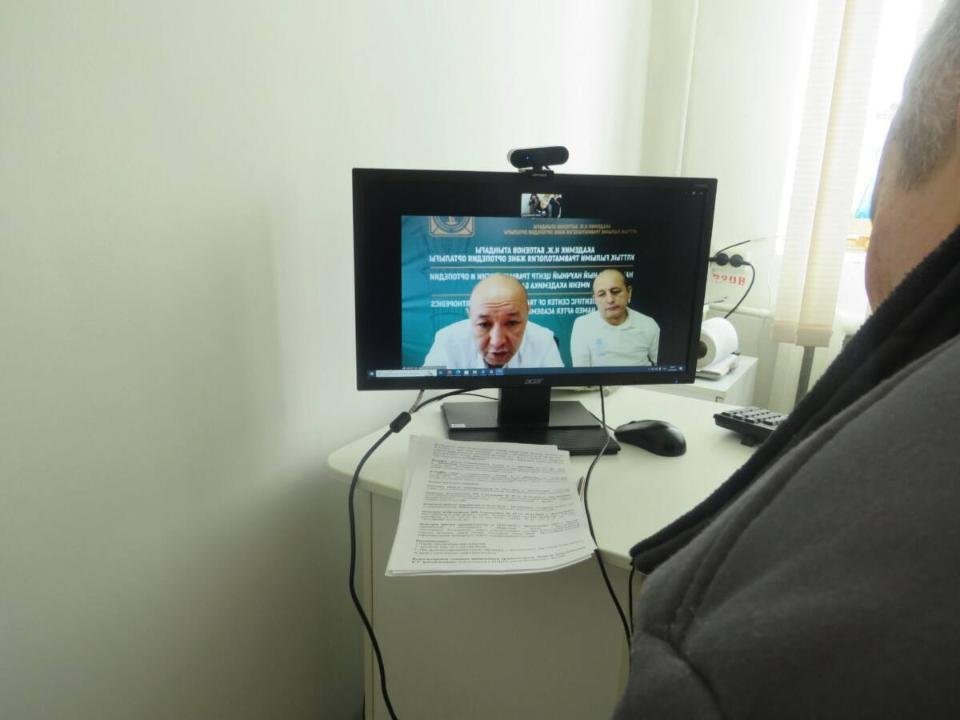
We previously reported on the case of Serik Dzhamanayev, a prisoner with cancer whose wife said he lacked proper treatment and ultimately died in hospital, prompting us to ask about cancer care:
Medical care for cancer patients is provided in accordance with the standard for the organization of oncological care. Doctors follow clinical guidelines when selecting the most effective methods of prevention, diagnosis, treatment, and rehabilitation, which are advisory in nature. Convicted persons have the right to file complaints about the quality of medical care with the regional departments of the Committee for Medical and Pharmaceutical Control of the Ministry of Health of the Republic of Kazakhstan.
Disability Status and Early Release
Relatives and lawyers report that some doctors avoid assigning disability status, which prevents incarcerated persons from receiving leniency or early release.
The Ministry said disability determination falls under the Ministry of Labor and is governed by Order No. 260.
For early release due to illness:
A convicted person with a condition listed in the list is released by the court from serving their sentence. Or the sentence is commuted to a more lenient one, taking into account the nature of the condition, the severity of the criminal offense, and the personality of the convicted person.
On allegations of medical corruption, the Ministry referred questions to law enforcement.
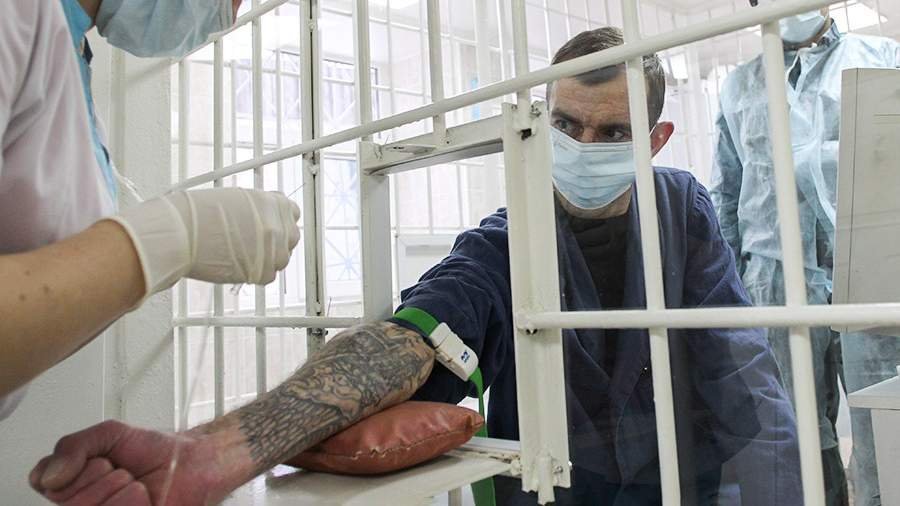
Citing medical confidentiality, the speaker declined to comment on the death of a former judge of the Specialized Inter-District Court for Administrative Offenses in an Almaty pre-trial detention center.
This incident caused quite a stir at the time, so we wanted to find out whether the Ministry of Health's investigation confirmed that he had indeed died of acute heart failure.
The Zhaugashty Women’s Prison
This spring, our journalists attempted to obtain permission from the State Penitentiary Service to visit the women's prison in the village of Zhaugashty in the Almaty region.
The reason for this was a post by lawyer Aiman Umarova alleging that 17 young children of inmates held at the local orphanage had fallen ill.

The Almaty Region Health Department did not confirm the information about the sick children.
Nevertheless, the Department of Penitentiary System initially refused to allow us to visit the prison. But then we reached a compromise. Our journalists were allowed inside the prison, but on the condition that they not film anyone or anything.
We were only allowed to interview one inmate, and only in the presence of her lawyer. We had no choice but to agree.
We asked the Ministry of Health how many children are currently being held in Zhaugashty, how they are feeling, and whether any deaths have been recorded among them in the past two years. The spokesperson's response was laconic.
As of October 22, 2025, there are 68 children in the Zhaugashty Orphanage in the Almaty Region. Currently, three children under two years of age are under the care of a pediatrician. The children are provided with the necessary medical care and medications. No child mortality cases were recorded in the penal system during the period 2023–2025.
Transgender Detainees
In the history of our country's judicial practice, there has only been one case of a transgender woman being tried. She was serving a sentence for extortion, fell victim to a prison supervisor, but his conviction was ultimately secured.
Russia also had a similar case involving an incarcerated transgender. A former Federal Penitentiary Service officer, now a blogger with the nickname "Bely Sobol," recounted this. Even during the preliminary investigation, a dilemma arose: which cell in the pre-trial detention center to place the transgender person in.
According to documents, the suspect was still listed as a man at the time (she hadn't yet had time to change her ID), but she looked no different from ordinary women. Ultimately, she spent the entire investigation and trial in the pre-trial detention center's medical unit. The outcome of the trial is not disclosed in public sources.
If they encounter a precedent involving the gender identity of a prisoner with problematic documents, can medical professionals really help her? For example, are they prepared to convince pre-trial detention center officials that she should be kept in a women's cell?
Or convince a judge that she should be under house arrest or under a travel restriction during the investigation and trial?
The reply to our questions was brief:
"Determination of gender identity is carried out within the framework of a forensic psychiatric examination under the jurisdiction of the Ministry of Justice of the Republic of Kazakhstan."
Original Author: Zhanar Kusanova
Latest news
- The Delivery of 51 Stadler Passenger Coaches Has Been Delayed
- Kazakhstan Returns Nearly 1,000 Citizens From the Middle East
- Damaged Baikonur Launch Pad Facility Restored After 2025 Collapse
- A Rare Black Melanist Wolf Was Shot in Eastern Kazakhstan
- Kazakhstan Maintains Neutral Stance on Middle East Escalation
- Kazakh MFA: Citizens Evacuated from the Middle East via Oman and Saudi Arabia
- Kazakhstan to Spend 4.6 Trillion Tenge on Road Projects Through 2029
- Central Asia Competes for the Skies: Why Kazakhstan Risks Falling Behind Uzbekistan on Jet Fuel
- The War in Iran Opens a Window of Opportunity for Kazakhstan’s Oil Sector, Analysts Say
- Iran Conflict Escalates Beyond the Gulf: What Kazakh Experts Say About Risks for Central Asia and Kazakhstan
- Kazakhstan Prepares Possible Evacuation of Its Citizens From Iran
- LRT in Astana Is Reaching the Finish Line: The Launch Is Expected in the Coming Months
- Kazakhstan Ready to Help the UAE Amid Escalation in the Region
- Tokayev Discusses Middle East Escalation With Qatar’s Emir
- Airlines Ready to Bring Kazakhstanis Home From the Middle East
- Tokayev Sends Support Messages to Gulf Leaders Amid Regional Escalation
- Kazakhstan Bans Its Airlines From Flying Over Several Middle East Countries
- Astana Strengthens Security Measures Amid Escalation Around Iran
- Tokayev Meets U.S. Ambassador Stufft, Discusses Board of Peace Cooperation
- Mangystau Launches AI-Assisted School Monitoring to Prevent Teen Suicidal Behavior

